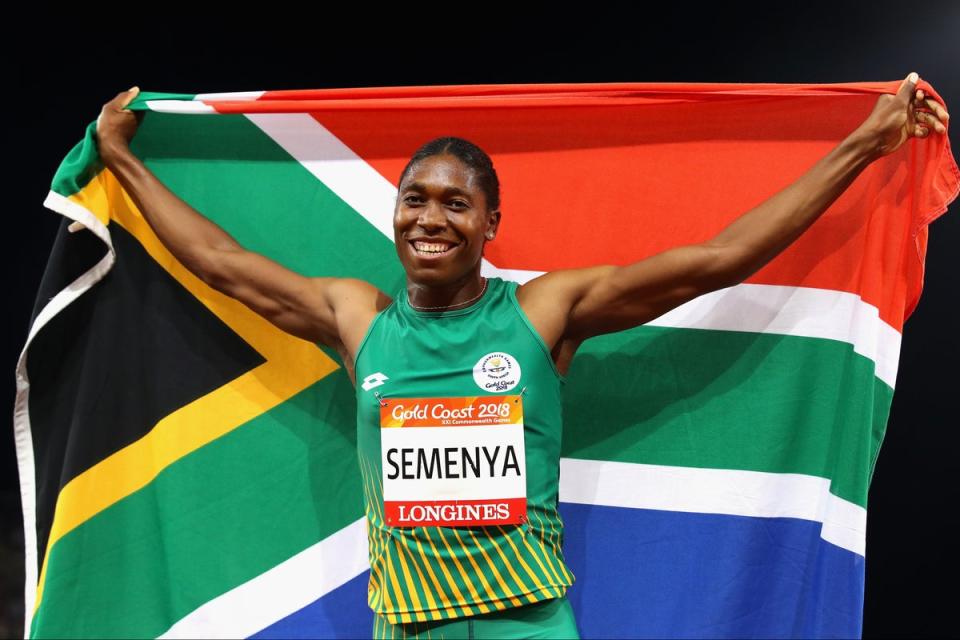Caster Semenya says her children will not do athletics as ‘women are treated like animals’

- Oops!Something went wrong.Please try again later.
Two-time Olympic gold medal winning runner Caster Semenya has said that she will not allow her children to compete in athletics because women are “treated like animals”.
The South African won 800 metres gold at London 2012 and four years later in Rio de Janeiro.
Semenya has been unable to run over her preferred distance since 2019, though, after the sport’s governing body World Athletics introduced new rules blocking athletes with some disorders of sex development (DSDs) from participating in 400, 800 and 1500-metre races.
Semenya was identified as female at birth, but has a condition that means she has XY chromosomes, undescended testes and naturally higher testosterone levels.
The European court of human rights (ECHR) ruled earlier this year that she had been let down by the Swiss legal system in her battle against limits on testosterone levels for female athletes, while her case has now been referred to ECHR’s grand chamber.
Semenya began her challenge of World Athletics in 2018 claiming that the body had used her as a “guinea pig” and that testosterone-surpressing medication had caused her abdominal pain and made her “constantly sick”.
The 32-year-old shares two children with her wife, former middle distance runner Violet Raseboya, and has said that she will not allow them to pursue athletics.
“No way. They will not do athletics,’ Semenya’s told BBC Radio 4’s Woman’s Hour. “I need to take them away from this nonsense of women being treated like they are animals.”
In her autobiography, The Race to Be Myself, Semenya recalls taking a gender recognition test in 2009, the same year she secured a first world title in Berlin at the age of 18.

The runner has insisted, though, that her condition has never given her a competitive advantage, opposing World Athletics’ position.
“For me, it’s not about what people label you, it’s about knowing your identity,” Semenya said. “It’s about you knowing yourself. I think, for me, that’s when self discovery comes. That’s when I start understanding myself and understanding the woman I am.
“I have the internal testes, but they don’t produce anything, they don’t mean anything. It’s more like a disorder in the medical term. Even [World Athletics president] Sebastian [Coe] knows that. They know that it does not play any role in sports.
“There’s never any unfair advantage over that. Why? Number one, it’s just a high elevated testosterone. If I had an advantage, why am I running the same times that they are running?”
A World Athletics statement released to the BBC said: “World Athletics has 15 years of data, observations and information directly from DSD athletes in our own sport that show high testosterone levels do provide an unfair advantage in the female category – and that our guidelines on testosterone thresholds are necessary, reasonable, and proportionate in our aim to protect the integrity of the female category.”

